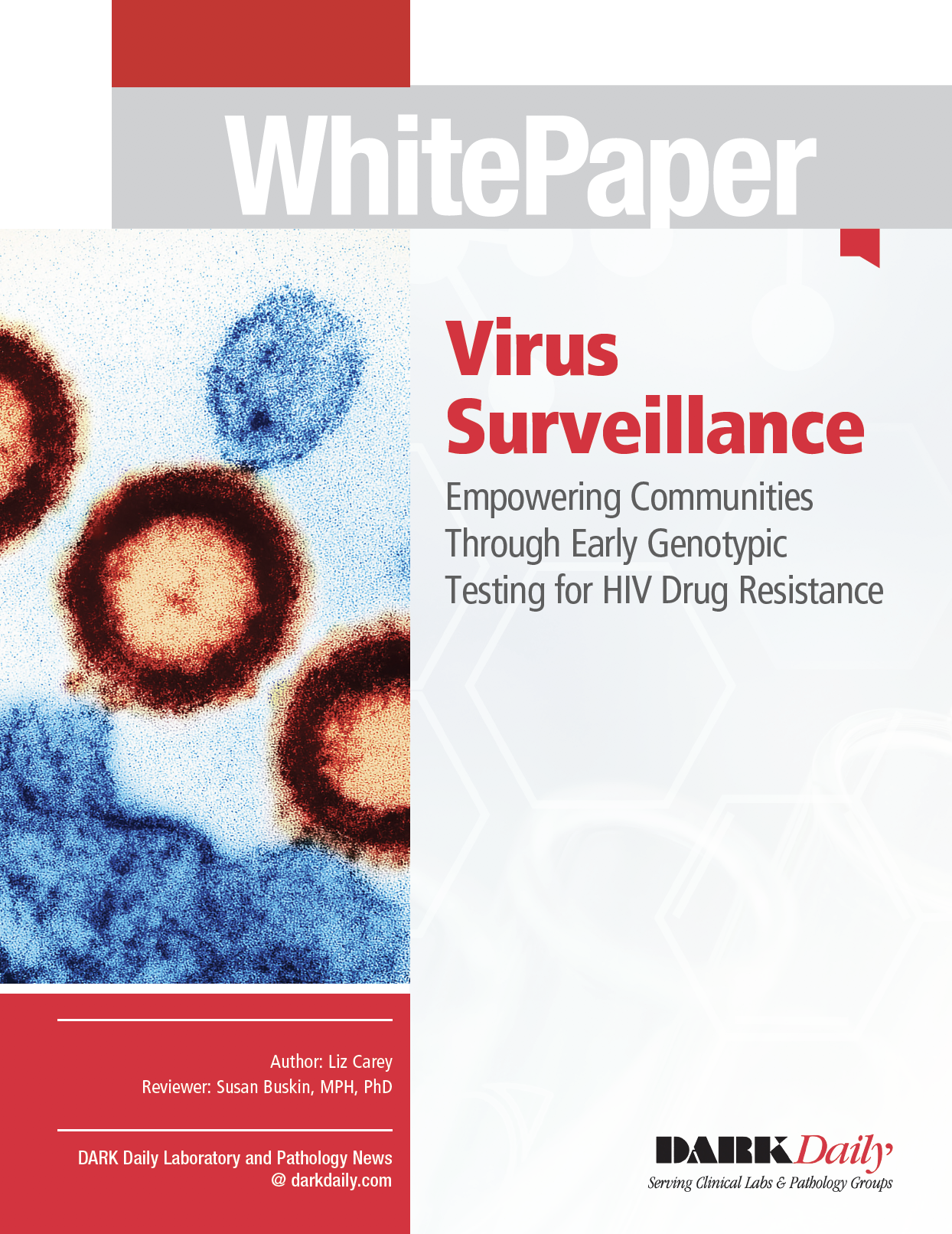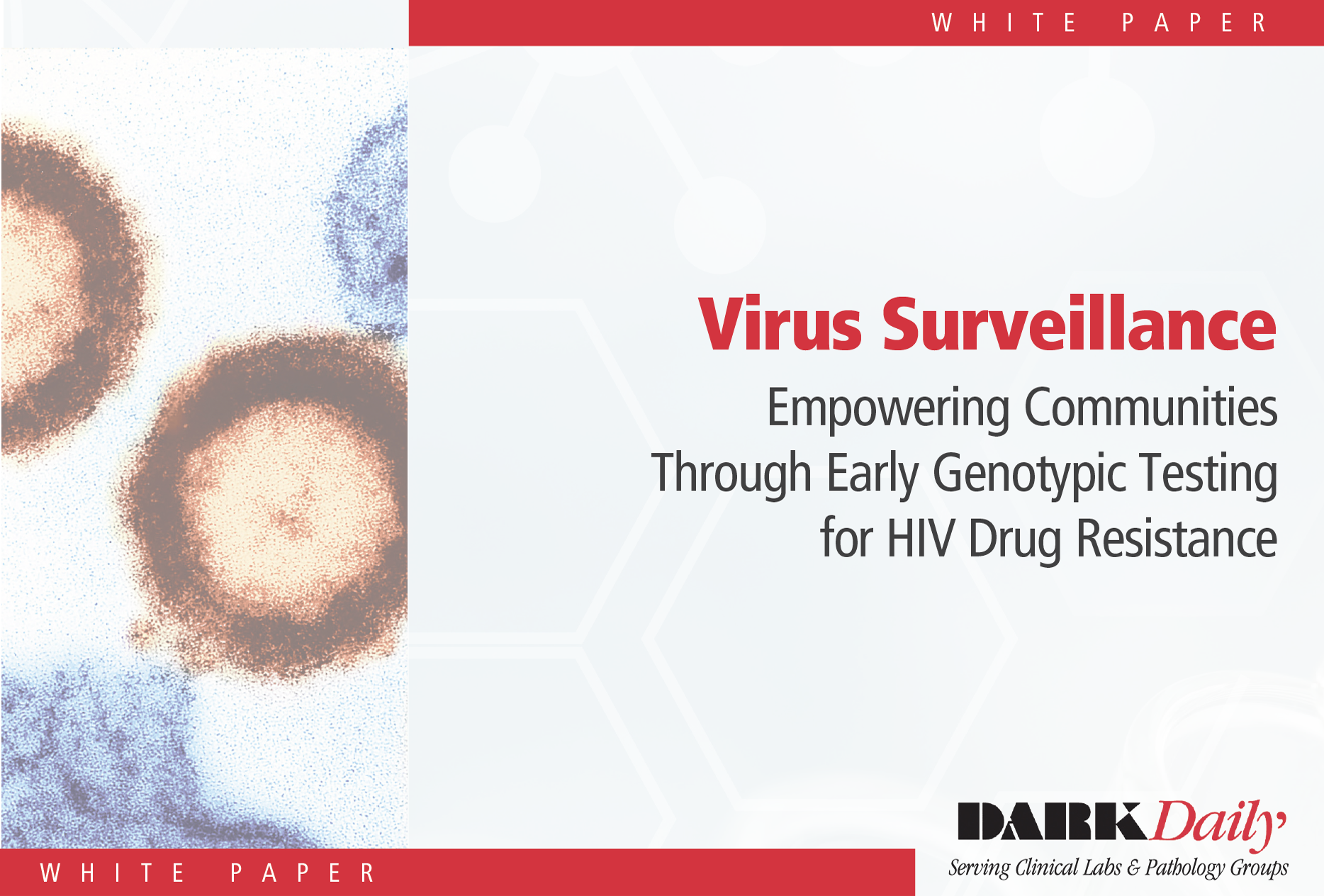Virus Surveillance
Empowering Communities Through Early Genotypic Testing
for HIV Drug Resistance

Thermo Fisher Scientific
Experts now say that recent HIV epidemiology data and care gaps driven by the impact of the COVID-19 pandemic warrant increased vigilance to identify HIV drug resistance.
Health laboratory professionals recognize the importance of drug-resistance testing in virus surveillance. Tracking viral diversity, identifying virus clusters, and drug-resistance can inform actions to reduce the impact of emerging and harmful drug-resistant mutations.
As antiretroviral drugs are a primary therapy for human immunodeficiency virus (HIV), the World Health Organization (WHO) warns that all antiretrovirals, including those from newer drug classes, are at risk of becoming partially or fully inactive due to the emergence of drug-resistant virus—it’s just a matter of time. This is an important point because if not prevented, HIV drug resistance can jeopardize the efficacy of medicines used to treat HIV, resulting in increased numbers of HIV infections, HIV-associated morbidity and mortality, and the need to develop new antiretrovirals.
This report specifically addresses care gaps driven by the COVID-19 pandemic, recent policy decisions influencing HIV drug-resistance testing, and insights from virus surveillance and cluster detection and response efforts. The report explains why genotypic testing for HIV drug resistance is especially timely.
Health laboratories have an opportunity to position themselves at the forefront of reducing the harm of drug resistance and infectious disease. Exploring new options in viral genotyping HIV may be a promising path.

Table of Contents
Introduction
Section 1:
Losing Ground Against HIV? Highlights of Care Gaps in Viral Load Monitoring and Drug-Resistance Testing
Section 2:
Recent Developments Signaling New Paths Forward With HIV-1 Testing
Section 3:
Programs That Monitor Genetic Evolution of Drug-Resistant Mutations for People Living With HIV
Conclusion
References
Complete the form below to get your free white paper
The Dark Intelligence Group is committed to protecting and respecting your privacy, and we’ll only use your personal information to administer your account and to provide the products and services you requested from us. From time to time, we would like to contact you about our products and services, as well as other content that may be of interest to you. In exchange for providing this free content, we may share your information with the companies whose content you choose to view. By accessing the white paper, you’re agreeing to the above.
You can unsubscribe from these communications at any time. For more information on how to unsubscribe, our privacy practices, and how we are committed to protecting and respecting your privacy, please review our Privacy Policy.
